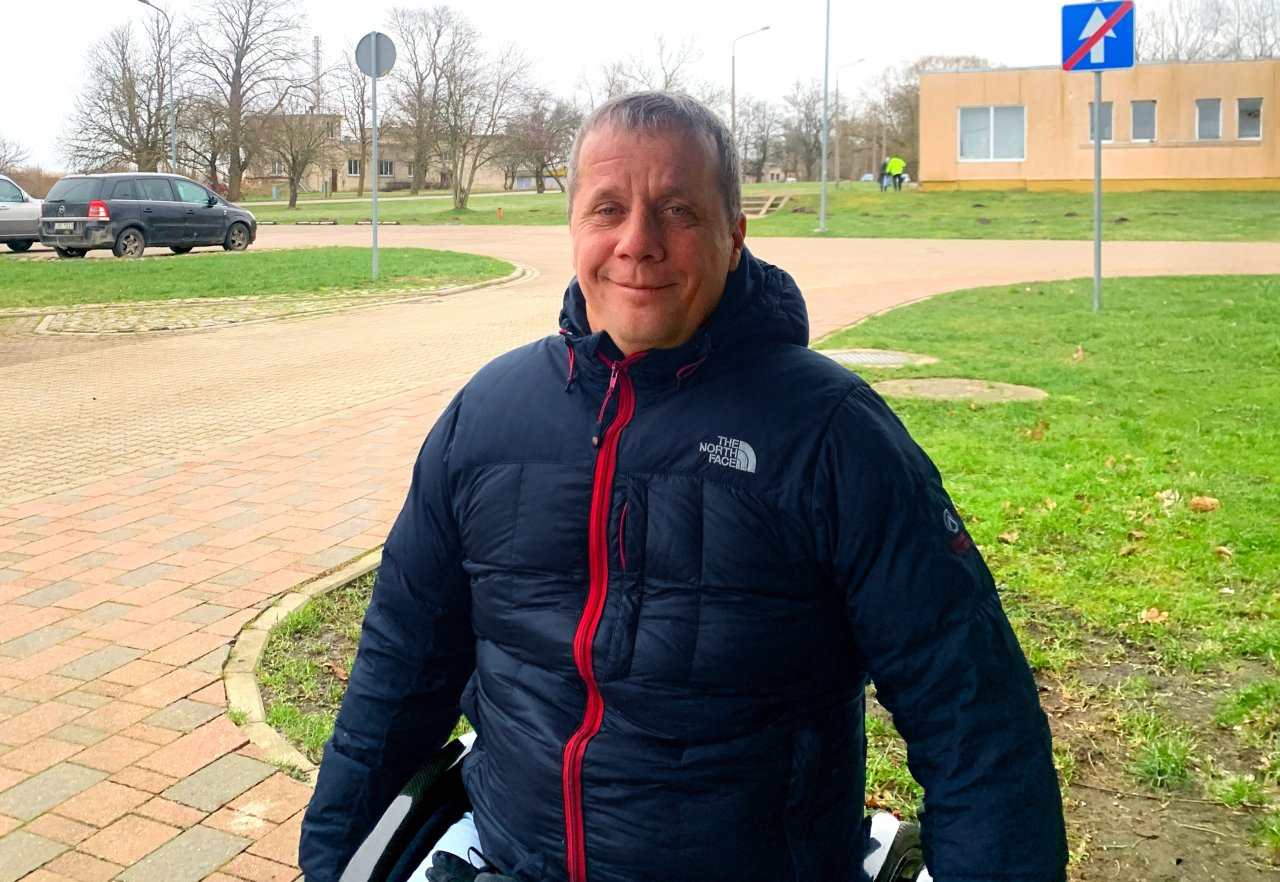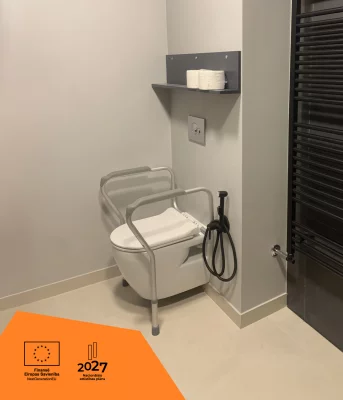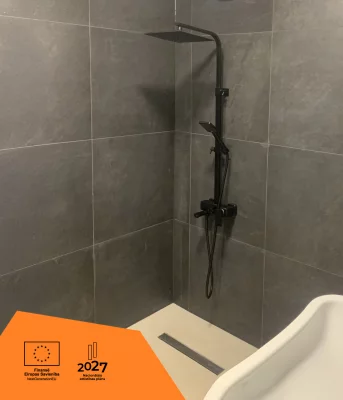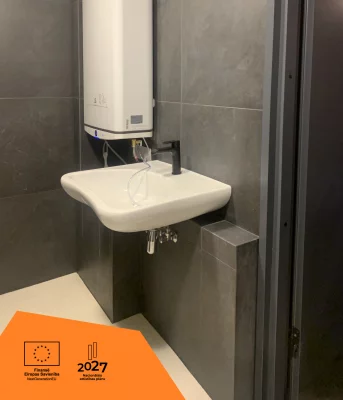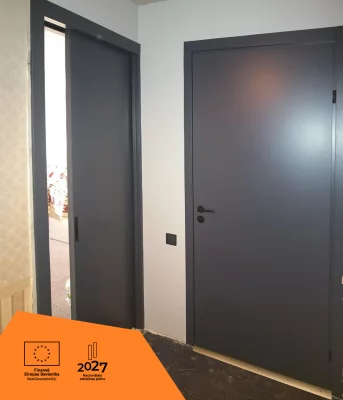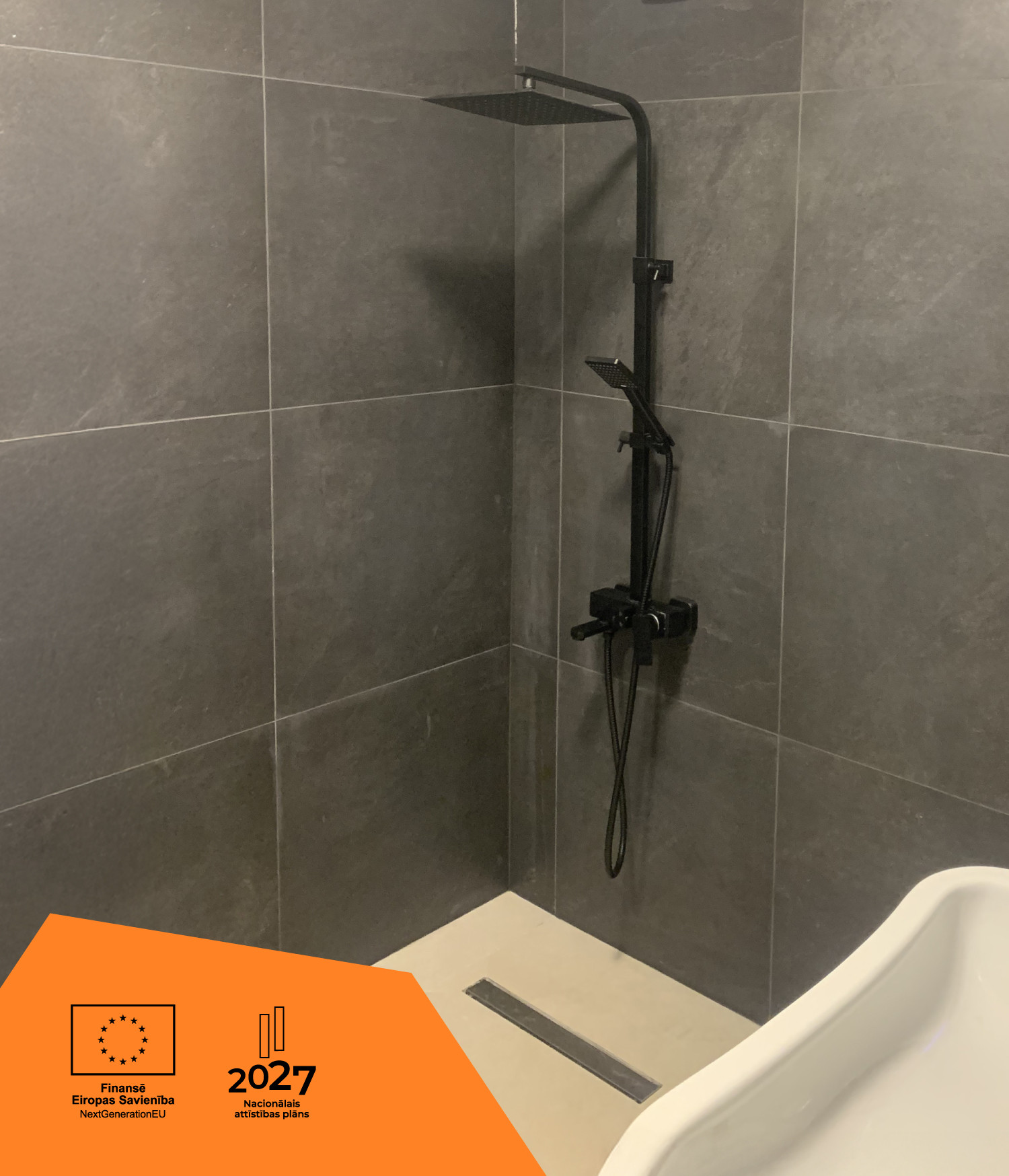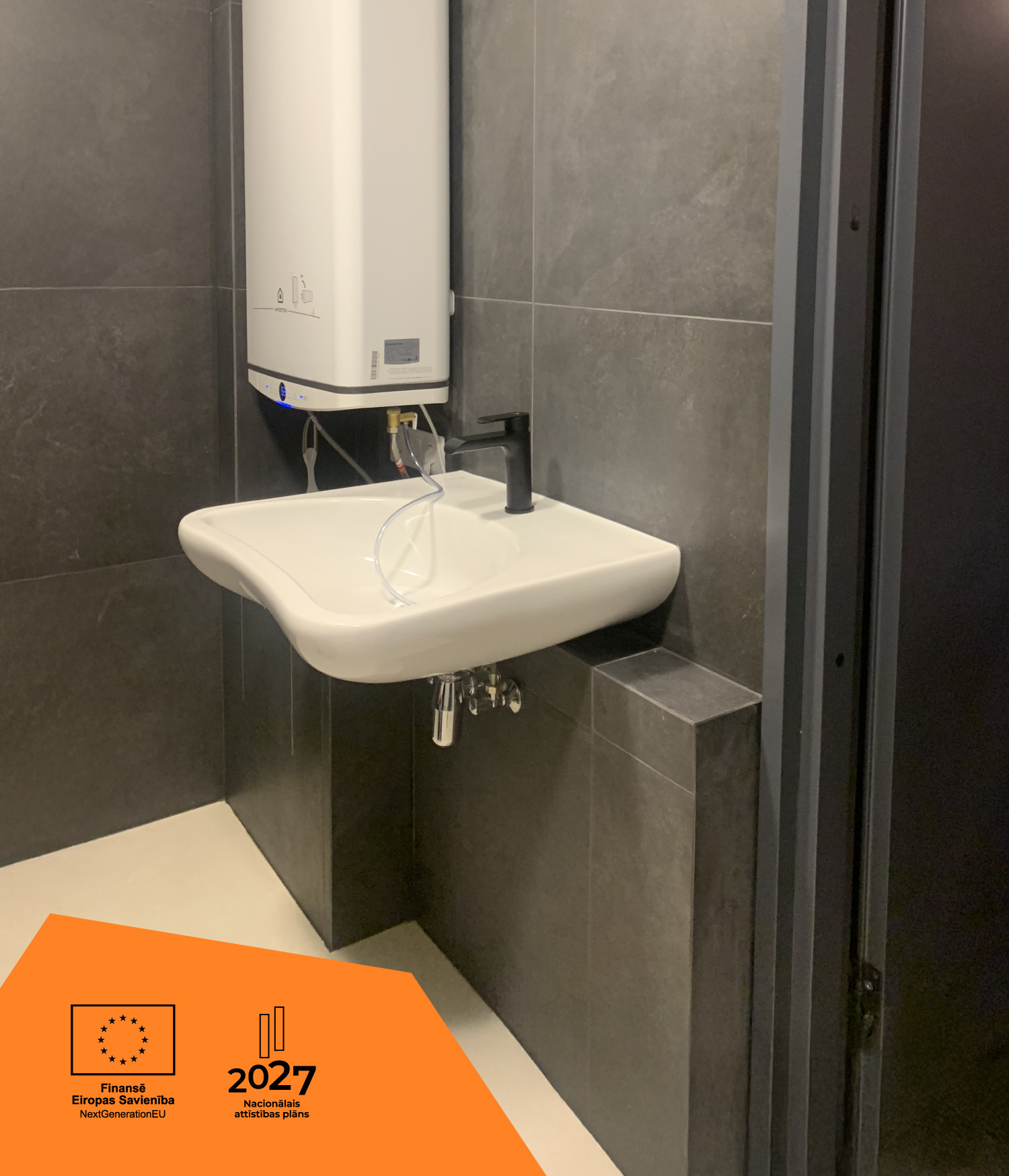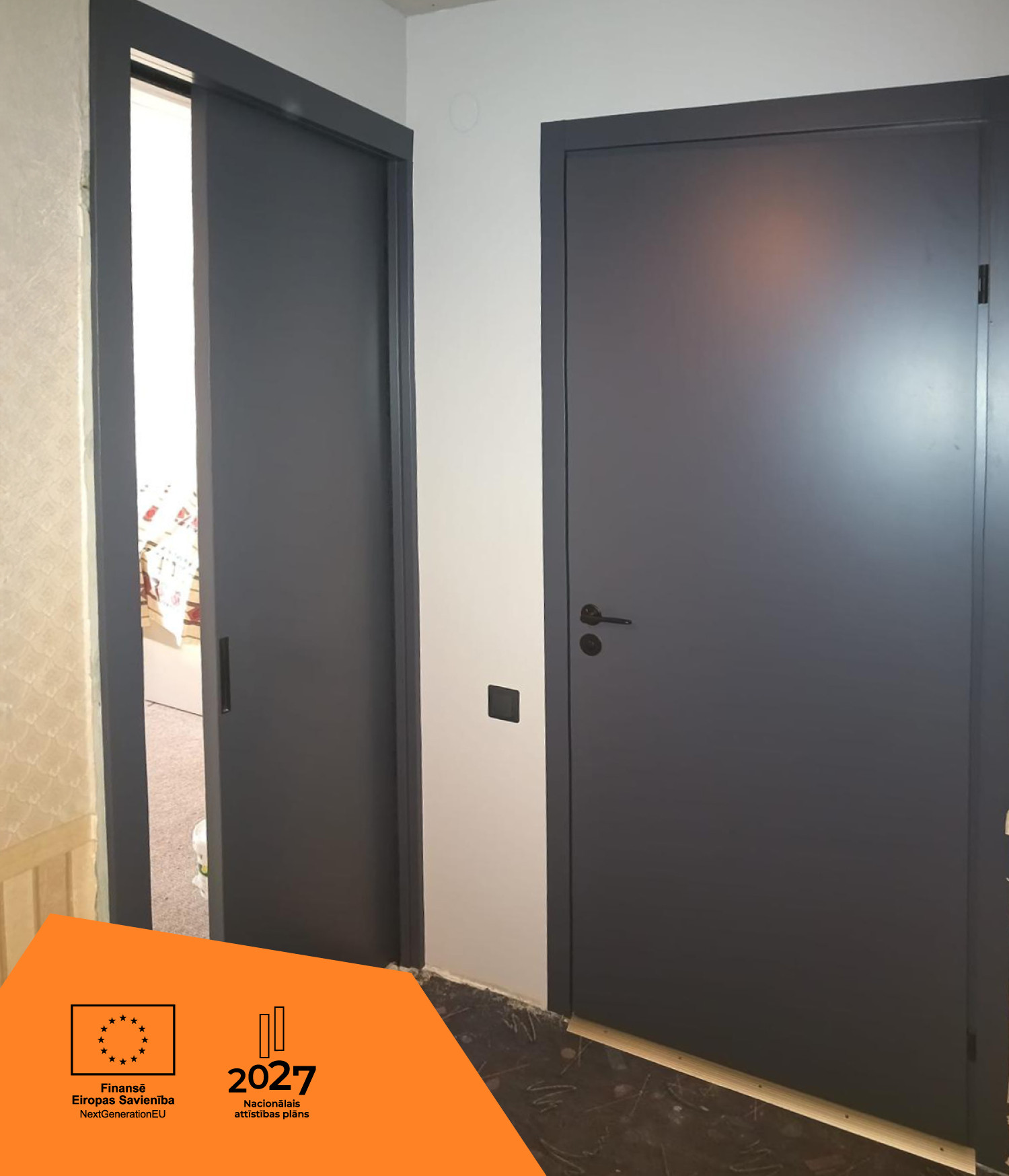For Dzintars, life changed dramatically on the day he was forced to become a wheelchair user. “It was a completely different world,” he says. “Had to quit, abandon plans for the future. As everyday habits changed, the circle of friends and acquaintances gradually narrowed - I was literally forced to learn to live afresh.”
After a losing battle with autoimmune illness, Dzintars returned to his parents' home in Targale - a two room apartment, a typical Soviet-built apartment building. The non-wheelchair-tailored environment made many day-to-day activities a challenge. “My home became an obstacle-filled zone in many places,” he recalls.
Dzintars’s story, though, is about positive change. Thanks to the support of the European Union Recovery Fund and Ventspils municipality, his housing has just undergone much-needed adjustments.
Dzintars has been living alone since his parents went into the sun. “I live with the dog. He keeps me cheerful and in good shape because despite nothing, we go for walks at least twice every day, “says Dzintars.
Asked how those around him perceived him, Dzintars admits that for several years he felt like he was being viewed differently. He concluded that it had largely been a struggle with himself. “When you feel incomplete, a lot of things are misunderstood and taken sharply. I see now that most people don't look at me any differently from the others. Maybe it's young children who pay attention more often – it's natural curiosity. They just want to understand why I'm sitting in a wheelchair. As with everyone, I feel a lot of self-confidence and self-esteem. Until now, it could take as long as several hours and always involved a high risk of injury. The apartment I lived in had a tiny bathroom with a cast-iron bath, but the toilet room was comparable to the size of the pantry cupboard. Even the doorstops got in the way, making it difficult to move. In these circumstances, dynamic lifestyles and high self-confidence are almost impossible – it destroys any desire to start something new because you just feel tired afterwards. Now, thanks to the European Union Recovery Fund and Ventspils municipality Council, this has changed. There have been much-needed adjustments made to my house. Washing up has become simple and enjoyable. The toilet is considerably more accessible as it is combined with the bathroom, and the door no longer interferes either. Elementary things have become freely available again! '
Chairman of Ventspils municipality Council Aivars Mucenieks points out that people with disabilities related to functional restrictions are most often faced with solving everyday domestic problems. 'We are a supportive and assisting municipality. As far as possible in our budget, we help citizens through social assistance and social services. As we are not a large municipality in terms of population, we are particularly actively looking for other ways to improve the quality of life in our county. We have observed that people with functional limitations often lack adequate environmental adaptations, technical aids and other environmental accessibility solutions in their homes. While these people have been given an assistant service, it doesn't necessarily mean they can do everyday things and get out of their homes without difficulty. We greatly appreciate the opportunity provided by the Recovery Fund to make improvements in accessibility to their homes.”
Dzintars is the first of 259 people in Latvia in whose housing adjustments have been made within the framework of the second round of “support measures for persons with disabilities for ensuring accessibility of the housing environment” of the Recovery Fund under the responsibility of the Ministry of Welfare.
This investment provides support for adapting housing for people with disabilities, thus reducing discrimination, improving employability and access to services, while promoting quality of life and respect for human rights.
Learn more about the European Union Recovery Fund:
https://www.esfondi.lv/par-es-fondiem/es-fondi-un-citi-finansu-instrumenti/af
Learn more about the contribution of the European Union Recovery Fund to promoting social inclusion and ensure social protection:
https://www.lm.gov.lv/lv/atveselosanas-fonds
